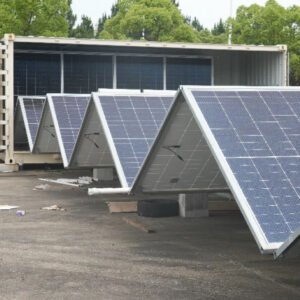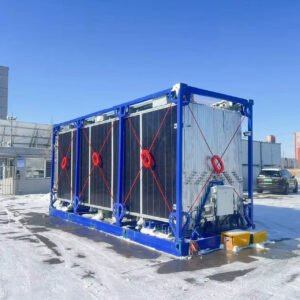How EPC and Partners Can Leverage Solar-Derived Products to Expand the Market?
•
How EPC and Partners Can Leverage Solar-Derived Products to Expand the Market?
Solar energy isn't just about panels on rooftops anymore—it's a gateway to innovative products that can revolutionize entire industries. But how can EPC firms[^1] and their partners tap into this potential?
EPC firms[^1] can expand their market by integrating solar-derived products[^2] like carports, EV charging systems[^3], and off-grid energy solutions, which address growing demand for sustainable infrastructure while diversifying revenue streams.

The solar industry is evolving beyond traditional installations, creating opportunities for EPC players to differentiate themselves. Let’s explore how these innovations can drive growth.
Derivative Products in EPC Projects: Carports, Surveillance, and Energy Storage Solutions?
What if solar infrastructure could serve multiple purposes beyond just generating electricity?
Solar carports, surveillance systems, and energy storage solutions[^4] allow EPC firms[^1] to maximize land use, enhance security, and stabilize energy supply, making projects more attractive to commercial and industrial clients.
Expanding Solar Applications
Solar carports are a prime example of dual-purpose infrastructure:
- Space efficiency: Parking lots become power generators.
- Added value: EV charging integration boosts ROI.
Energy storage solutions, paired with solar, provide:
- Grid independence: Critical for factories and data centers.
- Peak shaving: Reduces demand charges for businesses.
| Product | Key Benefit | Ideal Market |
|---|---|---|
| Solar carports | Dual land use + EV charging | Commercial real estate |
| Solar surveillance | Off-grid security for remote sites | Mining, agriculture |
| Battery storage | Energy resilience + cost savings | Industrial facilities |
By bundling these solutions, EPC firms[^1] can offer turnkey packages that outperform competitors still focused solely on rooftop PV.
How Agents Can Tap into Green Transportation: Solar Electric Vehicles and Charging Systems?
Imagine a future where every highway rest stop powers vehicles with sunlight—how close are we?
Agents and EPC partners can capitalize on solar EV charging systems[^3] by targeting fleet operators, municipalities, and retail hubs, where reliable, renewable-powered transport is a growing priority.
The EV Charging Boom
- Fleet electrification: Logistics companies need scalable charging.
- Example: Amazon’s solar-powered delivery hubs.
- Public infrastructure: Governments incentivize solar + EV combos.
- Grants often cover 30–50% of installation costs.
- Retail and hospitality: Chargers attract eco-conscious customers.
Pro tip: Pair charging stations with battery storage to avoid grid upgrade costs and sell excess power back to utilities.
Emerging Market Opportunities: Solar WiFi Base Stations and Energy Supply in Remote Areas?
Could solar be the key to closing the digital divide in underserved regions?
Solar-powered WiFi base stations and microgrids[^5] unlock rural connectivity and energy access, creating lucrative opportunities for EPC firms[^1] in telecom, disaster relief, and off-grid communities.
Untapped Markets
- Telecom expansion: Mobile operators seek solar to cut diesel costs.
- Disaster recovery: Rapid-deployment solar kits aid emergency response.
- Agricultural tech: Solar pumps and sensors modernize farming.
| Opportunity | Revenue Model |
|---|---|
| Solar WiFi stations | Lease-to-own models for ISPs |
| Microgrids | Pay-as-you-go energy subscriptions |
Conclusion
EPC firms[^1] that embrace solar-derived products[^2]—from EV charging to off-grid solutions—will lead the next wave of sustainable infrastructure, unlocking new markets and revenue streams.
[^1]: Learn strategies for EPC firms to expand their market presence through solar energy solutions.
[^2]: Explore how solar-derived products can transform industries and create new market opportunities.
[^3]: Understand the synergy between EV charging and solar energy for sustainable transportation.




